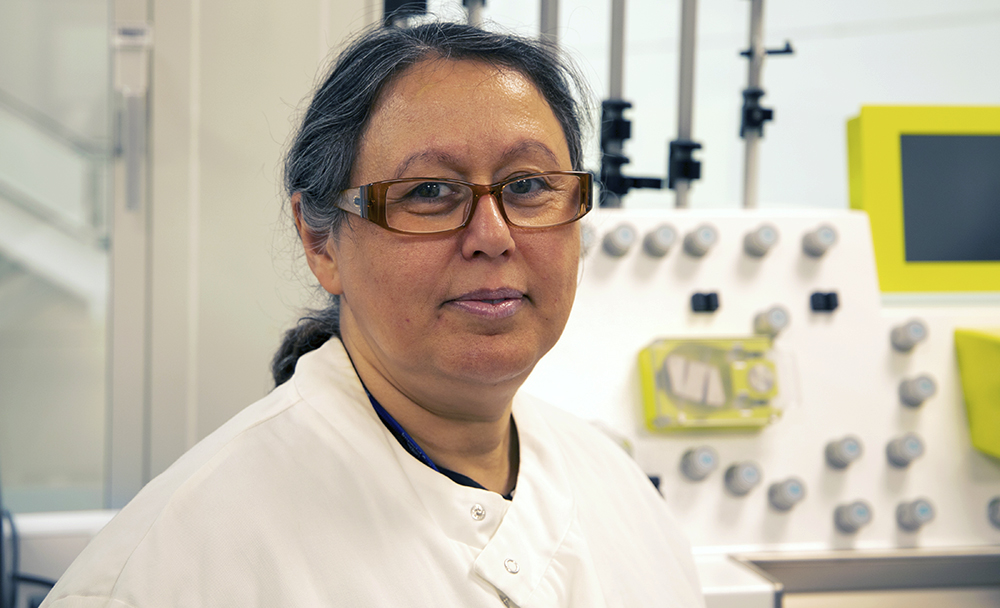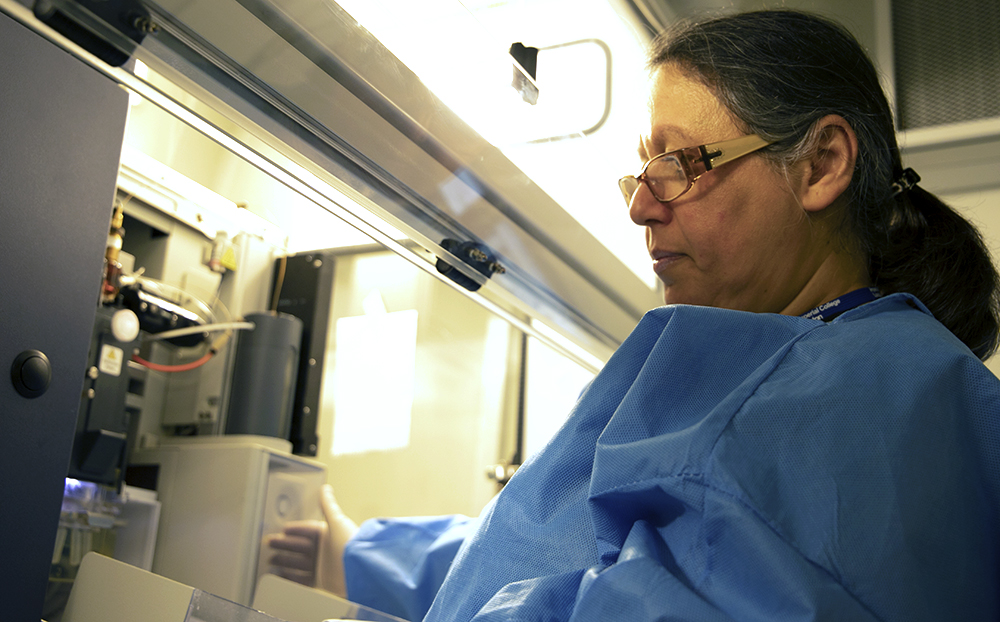
This post was originally published on the Department of Medicine Staff Blog on 25 June 2019.
In the latest instalment of our Staff Profile series, we spoke to Parisa Amjadi about her role managing the Centre for Immunology and Vaccinology CL3 Cell Sorting Facility, making the impossible possible for researchers, and the importance of continued investment in cutting-edge facilities.
Introduce yourself – who are you and what do you do?
I am Parisa and I work as the Flow Cytometry Facility Manager in the Department of Medicine, based at the Chelsea and Westminster Hospital Campus. The central aspect of my role is to manage and operate the FACS cell sorter within the Containment Level 3 (CL3) laboratory.
When did you first join the Department, and where did you work or study before this?
I started working at Imperial as a Research Technician at the Chelsea and Westminster Hospital Campus in 1997 and was the Flow Cytometry Facility Manager at the Kennedy Institute of Rheumatology, University of Oxford (formerly the Kennedy Institute of Rheumatology Division at Imperial College London) from 2001 to 2014. I joined the Department of Medicine in September 2015.
What’s been the biggest highlight for you since taking up the post?
I started working at the College as a junior technician without much experience. I am very proud that I was given opportunities within the College to thrive and expand my knowledge and expertise in safety, laboratory and facility management, and to become a specialist in the flow cytometry technique.
For some studies, researchers need to sort cells live from different populations of cells so that they can study them further through genetic/genomic analysis, proteomics, in vitro cell culture and cell function analysis. Here at Chelsea and Westminster Hospital, we have a unique setup that allows researchers to sort live cells infected with Hazard Group 3 pathogens such as HIV. I am very proud of being responsible for the effective operation of such an exclusive facility that makes a seemingly impossible task possible for researchers from the College and other institutions.
What’s the most interesting part of your role?
Helping students and staff with their experimental questions and ensuring their experiments are optimally planned. Flow cytometry can be quite daunting for those that are new to it. It is very inspiring to see staff and students effectively applying the technique once they’ve been received the appropriate training.
What’s the most difficult aspect of what you do?
Biosafety concerns. The biohazard risk that is associated with cell sorting is always a concern. I have to be extra careful not to put myself and other users of the lab at risk.
Equipment failure is also challenging. When equipment unexpectedly breaks down, it could result in an experiment being lost as well as time and money being wasted. This is something that is unfortunately inevitable, and we just have to do our best to rectify the problem and save the experiment on the day.
What would you say is the biggest misconception people hold about what you do?
Sometimes researchers are unaware of the limitations on what can be done and how quickly.
What’s one thing you’d like to change about the Department’s and/or the College’s working culture?
The College provides opportunities for its staff through a number of professional development courses and training. Imperial’s working culture provides a great platform for co-operation and collaboration between staff.
As a technician, I am very keen to see the College and in particular the Department to be equipped with cutting-edge technologies and I’d like there to be more support for research facilities. The cost of operational support and equipment is a necessary investment for the progression of the excellent research carried out within the Department.
Where do you see yourself in five years’ time?
I am not sure how to answer this question after being in the role for 22 years! I am always delighted when I come across colleagues who engage you with their exciting research and new ideas and, hopefully, this will continue to be the case.
What are your biggest hobbies/passions when you’re not busy at work?
I enjoy travelling, walking and cycling. I also enjoy my partners’ cooking.
And finally: if you were exiled to a desert island but allowed one luxury item, what would it be?
Yorkshire Tea!
